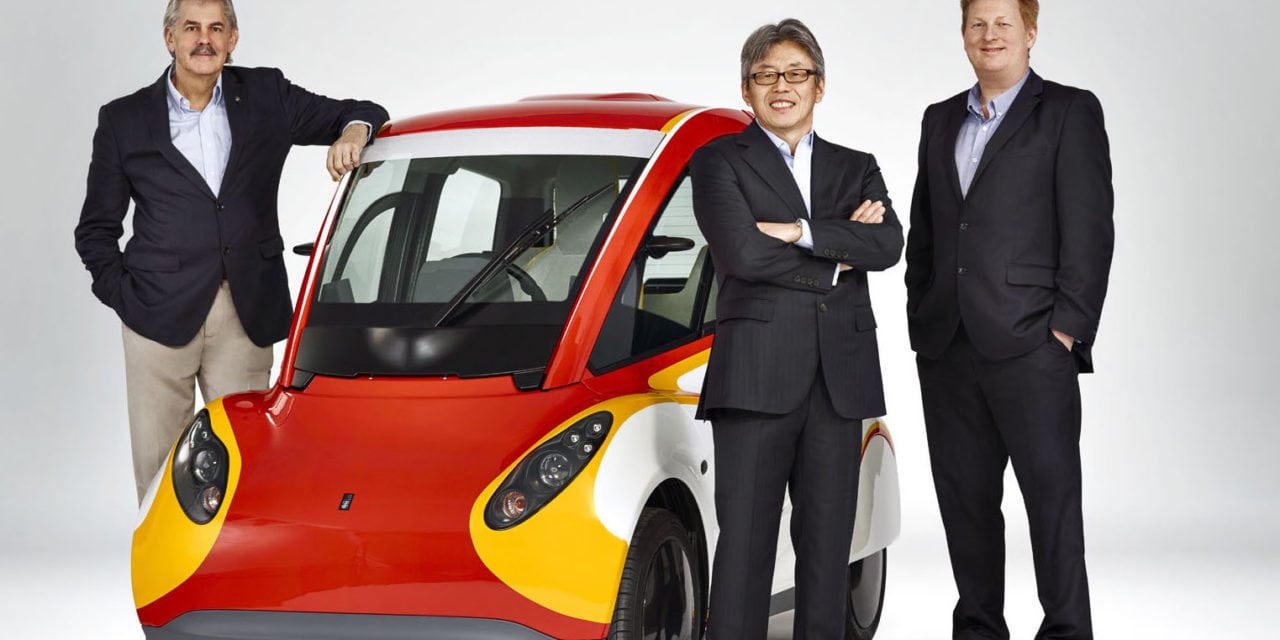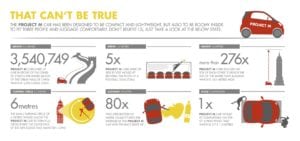Shell has unveiled a concept city car which, if it were ever to go into production, could deliver material reductions in energy use in the road transport sector. The three seater car is tangible proof of energy efficiency improvements that can be achieved by using cutting edge technology available today through a process of “co-engineering” whereby vehicle body, engine design and lubricants are all created together.
Independent testing and a rigorous life-cycle study shows that Shell’s Concept Car would deliver a 34% reduction in primary energy use over its entire lifecycle when compared to a typical city car available in the UK. The Shell Concept Car would use around half the energy required to build and run than a typical small family car available in the UK and 69% less than that of a typical sports utility vehicle available in the UK
The Shell Concept Car is a total rethink of the Gordon Murray Design T.25 city car produced in 2010 for which Shell produced a prototype oil to improve the vehicle’s energy efficiency. The new car is the result of a co- engineering collaboration between world leading vehicle, engine and lubricant designers, with each of the three elements of the vehicle tailored to work optimally with each other. It takes a holistic view on energy reduction focusing on design material selection; reduced energy demand via aggressive downsizing, and streamlining while enhancing the efficiency of energy delivery through innovative engine design and lubricant formulation to minimise the impact in terms of overall energy lifecycle use.












